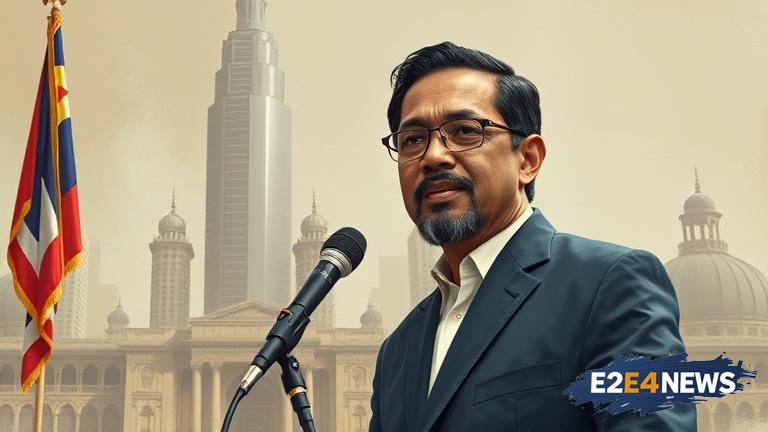In a recent address, Malaysian Prime Minister Anwar Ibrahim stressed the need for a more nuanced understanding of Asian history, one that moves beyond the traditional colonial narratives that have long dominated the field. He argued that such an approach would not only provide a more accurate representation of the region’s past but also foster a greater sense of unity and cooperation among Asian nations. By exploring the diverse cultural, social, and political landscapes of Asia, individuals can gain a deeper appreciation for the complexities and richness of the region’s history. This, in turn, can help to promote a more inclusive and equitable understanding of the world, one that recognizes the significant contributions and achievements of Asian civilizations. Anwar Ibrahim’s call for a reevaluation of Asian history is particularly significant in the context of Malaysia, a country with a diverse cultural heritage and a history that has been shaped by a variety of influences, including colonialism. The Prime Minister’s remarks also highlight the importance of education in promoting a more nuanced understanding of history, emphasizing the need for curricula that reflect the diversity and complexity of the Asian experience. Furthermore, Anwar Ibrahim’s advocacy for a more inclusive approach to history is in line with the growing recognition of the need to decolonize knowledge and challenge dominant narratives that have long been imposed upon non-Western societies. This movement towards decolonization is not limited to Malaysia or Asia but is a global phenomenon, with scholars and activists around the world seeking to challenge and redefine the way we think about history, culture, and identity. The implications of Anwar Ibrahim’s call for a deeper appreciation of Asian history are far-reaching, with the potential to impact not only our understanding of the past but also our approach to international relations, cultural exchange, and global cooperation. By promoting a more nuanced and inclusive understanding of Asian history, we can work towards a more just and equitable world, one that recognizes the value and dignity of all cultures and civilizations. In addition, this approach can help to foster greater empathy and understanding among nations, facilitating cooperation and collaboration on a range of global challenges. The study of Asian history can also provide valuable insights into the region’s economic, social, and political development, highlighting the importance of understanding the historical context of contemporary issues. Moreover, Anwar Ibrahim’s emphasis on the need to move beyond colonial narratives reflects a growing recognition of the need to challenge dominant power structures and promote more equitable and just forms of knowledge production. This requires a critical examination of the ways in which history has been constructed and represented, as well as a commitment to amplifying the voices and perspectives of marginalized and underrepresented communities. Ultimately, the Prime Minister’s call for a deeper appreciation of Asian history is a call to action, urging individuals and nations to work together towards a more inclusive and equitable understanding of the world. This requires a willingness to challenge dominant narratives, listen to diverse perspectives, and engage in ongoing dialogue and collaboration. By doing so, we can promote a more nuanced and informed understanding of Asian history, one that reflects the complexity and richness of the region’s cultural heritage. The significance of Anwar Ibrahim’s remarks extends beyond Malaysia, highlighting the need for a global reevaluation of the way we think about history and culture. As the world becomes increasingly interconnected, it is more important than ever that we work towards a more inclusive and equitable understanding of our shared human experience. This requires a commitment to challenging dominant narratives, promoting diverse perspectives, and fostering greater empathy and understanding among nations. By embracing this approach, we can work towards a more just and equitable world, one that recognizes the value and dignity of all cultures and civilizations. The call for a deeper appreciation of Asian history is also a reminder of the importance of preserving and promoting cultural heritage, highlighting the need for ongoing efforts to protect and conserve historical sites, artifacts, and traditions. This requires a collaborative approach, with governments, communities, and individuals working together to promote cultural preservation and exchange. In conclusion, Anwar Ibrahim’s advocacy for a more nuanced understanding of Asian history is a significant step towards promoting a more inclusive and equitable understanding of the world. By challenging dominant narratives and amplifying diverse perspectives, we can work towards a more just and equitable world, one that recognizes the value and dignity of all cultures and civilizations.





